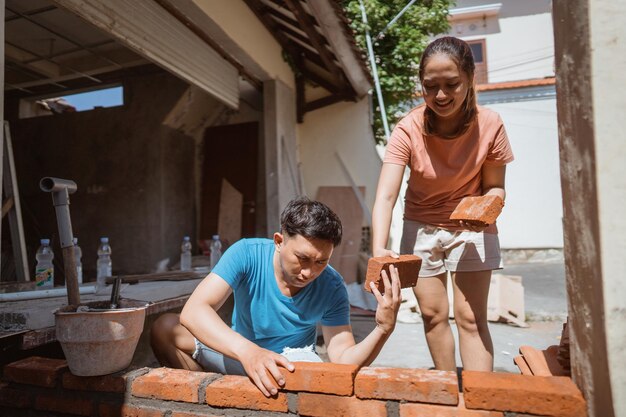Gap Year Guide: Maximize Your Time Before College in 2025

Planning a gap year before college in 2025? This comprehensive guide provides essential tips and strategies to make the most of your time, including travel, skill development, volunteering, and personal growth opportunities, ensuring you’re well-prepared and refreshed for your college journey.
Taking a gap year before college can be an incredibly enriching experience. This Gap Year Guide: How to Make the Most of Your Time Before College in 2025 will provide you with the tools and insights to plan a fulfilling and transformative year off, setting you up for success in your academic pursuits and beyond.
What is a Gap Year, and Why Take One?
A gap year is a period, typically a year, taken as a break from formal education. Students often take a gap year between high school and college to travel, work, volunteer, or pursue specific interests.
But why should you consider a gap year?
Benefits of Taking a Gap Year
A gap year isn’t just a vacation; it’s an investment in your personal and academic future. It’s beneficial to take time off and explore other things before entering the university to make sure you choose the ideal course for you. Here are some compelling reasons to consider one:
- Increased Maturity and Self-Confidence: Stepping outside your comfort zone and navigating new experiences builds resilience and independence, boosting your self-assurance.
- Enhanced Academic Performance: Students who take gap years often return to their studies with renewed focus and motivation, leading to better grades and a clearer sense of purpose.
- Career Exploration: Experiencing different work environments or volunteering in specific fields can help you discover your passions and make more informed decisions about your future career.
- Cultural Awareness: Traveling and interacting with diverse cultures broadens your perspective and fosters empathy, making you a more well-rounded and globally aware individual.
In essence, a carefully planned gap year can provide invaluable life skills and experiences that complement your academic pursuits.
Planning Your Gap Year: Setting Goals and Budgeting
Effective planning is key to a successful gap year. Before you embark on your adventure, take the time to define your goals and create a realistic budget.
Here’s how to start:
Defining Your Gap Year Goals
What do you hope to achieve during your gap year? Are you looking to gain work experience, travel the world, volunteer for a cause you care about, or develop specific skills? Setting clear, achievable goals will give your gap year direction and purpose.
Budgeting for Your Gap Year
Financial planning is crucial. Your budget will depend on your chosen activities and destinations. Consider these factors:
- Travel Costs: Research transportation, accommodation, and visa requirements.
- Living Expenses: Estimate your food, accommodation, and local transportation costs.
- Activity Fees: Factor in any costs associated with specific programs, courses, or volunteer placements.
- Emergency Fund: Set aside a contingency fund for unexpected expenses.
Explore funding options like scholarships, grants, and part-time work to help finance your gap year.

Travel Opportunities During Your Gap Year
Traveling during a gap year can be an incredibly rewarding experience, offering opportunities for cultural immersion, personal growth, and unforgettable adventures.
Here are some ways to make the most of your travel experiences:
Choosing Your Destination
Consider your interests and budget when selecting your travel destinations. Do you dream of exploring ancient ruins in Europe, hiking through the mountains of South America, or volunteering in a rural community in Africa? Research different regions and cultures to find a place that aligns with your goals.
Responsible Travel
Practice responsible travel habits to minimize your impact on the environment and support local communities. Respect local customs, reduce your waste, and choose sustainable accommodation options.
Gap Year Travel Programs
Consider the variety of organizations that offers many gap year programs. You can find programs that range from wildlife conservations, education and even teaching, and historical preservations
Traveling during your gap year is a fantastic opportunity to broaden your horizons and create lasting memories.
Volunteering and Community Service Options
Volunteering during your gap year allows you to make a meaningful difference in the world while developing valuable skills and gaining new perspectives.
Here’s how to find the right opportunity:
Identifying Your Interests
What causes are you passionate about? Do you want to work with children, protect endangered species, or build homes for families in need? Identifying your interests will help you find a volunteer placement that is both fulfilling and impactful.
Here are some examples of causes:
- Education: Tutor children, teach English, or assist in classrooms.
- Environment: Participate in conservation projects, clean up beaches, or plant trees.
- Healthcare: Assist in clinics, support patients, or promote health education.
Finding Volunteer Opportunities
Many organizations offer volunteer placements around the world. Research reputable organizations and carefully review their programs to ensure they align with your values and goals.

Developing New Skills and Exploring Interests
A gap year provides the perfect opportunity to develop new skills and explore interests outside of academics. This can enhance your resume and help you discover hidden talents.
Consider these options:
Online Courses and Workshops
Take online courses in subjects that interest you, such as coding, graphic design, or a new language. Many online platforms offer affordable or free courses that can boost your skills.
Internships and Work Experience
Gain practical work experience through internships or part-time jobs. This can provide valuable insight into different industries and help you develop professional skills.
Creative Pursuits
Explore your creative side by taking up painting, writing, music, or photography. A gap year is a great time to nurture your artistic talents.
The skills and experiences you gain during your gap year will be valuable assets in your future academic and professional endeavors.
Ensuring a Safe and Healthy Gap Year
Your safety and well-being should be a top priority during your gap year. Taking proactive measures to protect your health and safety will ensure a smooth and enjoyable experience.
Here’s how:
Travel Insurance
Purchase comprehensive travel insurance that covers medical emergencies, trip cancellations, and lost or stolen belongings. Ensure your policy covers all the activities you plan to undertake during your gap year.
Health Precautions
Consult your doctor about any necessary vaccinations or health precautions for your travel destinations. Pack a well-stocked first-aid kit with essential medications and supplies.
Taking care of your health and safety will allow you to fully enjoy your gap year without unnecessary worry.
Re-entering Academia: Preparing for College
As your gap year draws to a close, it’s time to start preparing for your transition back to academia. Reflecting on your experiences and planning for your college journey will ensure a successful return to your studies.
How to get ready for college:
Reflecting on Your Experiences
Take time to reflect on what you have learned and accomplished during your gap year. How have you grown as an individual? What skills have you developed? How has your perspective on life changed? Documenting your experiences in a journal can help you process your thoughts and feelings.
Connecting with Your College
Stay in touch with your college or university during your gap year. Inform them of your plans and check in regularly to ensure a smooth transition back to campus. Find an advisor whom you can easily reach for questions.
By reflecting on your gap year experiences and preparing for your return to academia, you will be well-equipped to succeed in your college studies.
| Key Point | Brief Description |
|---|---|
| 🌍 Travel | Explore new cultures, broaden perspectives. |
| 🙏 Volunteering | Contribute to causes, gain empathy. |
| 📚 Skill Development | Learn new skills, enhance resume. |
| 💰 Budgeting | Plan finances carefully, seek funding. |
Frequently Asked Questions
▼
Ideally, you should start planning your gap year 6-12 months in advance to research opportunities, secure funding, and make necessary arrangements.
▼
Explore scholarships, grants, part-time jobs, and crowdfunding to finance your gap year. Create a detailed budget and track your expenses carefully.
▼
Traveling alone can be safe with proper planning. Research your destinations, stay in secure accommodations, and inform someone of your itinerary.
▼
No, a well-planned gap year can enhance your college applications by demonstrating maturity, independence, and a broad range of experiences.
▼
Pack essential items like a first-aid kit, travel adapter, comfortable shoes, versatile clothing, and necessary travel documents. Adjust your packing list to suit your destinations.
Conclusion
A gap year can be a transformative experience that enhances your personal growth, academic performance, and career prospects. By setting clear goals, planning carefully, and embracing new experiences, you can make the most of your time before college and set yourself up for future success.





